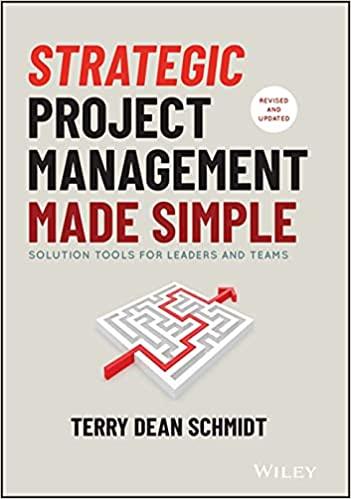Question
Assume that ORD, Chicago International Airport, employs an average of 4,000 security guards. However, exhaustion and very ordinary pay lead to a high turnover rate:
Assume that ORD, Chicago International Airport, employs an average of 4,000 security guards. However, exhaustion and very ordinary pay lead to a high turnover rate: once trained and on the job, agents leave after an average of 2 years of service. ORD must therefore train new agents regularly and in an economical manner.
A training session lasts 5 weeks and requires a team of 10 instructors and 5 assistants. The salary for an instructor is $400/week and $200/week for an assistant. The training team is only paid for the training periods it provides. In addition, the salary of instructors and assistants is independent of the number of participants in the session. Other costs for holding a session are negligible. Following the mandatory 5-week training, a new agent will take 1 week of paid vacation and then be included in the pool of available employees who will take up employment as agents leave, after their average length of service of 2 years .
Let's say ORD pays new employees $200 per week while they are interns (5 weeks of training + 1 week of vacation + time spent in the available employee pool before starting the job). Let's also assume 50 weeks in a year and a number of applicants that always exceeds the demand for agents.
Use the QC model to calculate the optimal size of a training session, the number of sessions to offer per year, and the time between each training session. Also estimate the total annual cost of this strategy. Note that in this context, this annual cost has three components, similar to the total inventory cost: Orders (S*D/Q) + Warehousing (H*Q/2) + Acquisition (C*D). Hint: Start by estimating the QEC model inputs (D, S, H and C).
Due to union constraints we can now only offer one training session every 2 weeks. Calculate the new session size and the new total annual cost. Compare this total cost with that of the previous question.
Step by Step Solution
There are 3 Steps involved in it
Step: 1

Get Instant Access to Expert-Tailored Solutions
See step-by-step solutions with expert insights and AI powered tools for academic success
Step: 2

Step: 3

Ace Your Homework with AI
Get the answers you need in no time with our AI-driven, step-by-step assistance
Get Started


